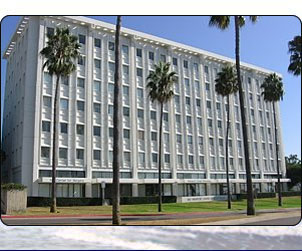FAQ’s
 |
|||

|
 |
1. What is adrenal fatigue?
Adrenal fatigue occurs when the adrenal glands (situated above the kidneys) are overworked or damaged, which results in a significant reduction in the amount of adrenal hormones secreted. The adrenals mobilize the body’s response to physical and emotional stress through hormones that regulate energy production, heart rate, muscle tone, and other processes that help to cope with stress. When the major adrenal hormones, which include cortisol and adrenaline, among several others, are depleted, the body is no longer able to meet the demands of stress. This syndrome is most commonly associated with intense or prolonged stress and may also arise during or after acute or chronic infections.
2. What causes adrenal fatigue?
It is estimated that up to 80% of North Americans have adrenal fatigue at some point in their lives. Since stress causes the adrenal glands to produce large amounts of adrenal hormones, chronic stress can be a major cause of adrenal fatigue. During an illness, a life crisis, or a difficult situation, the adrenal reserves of even the healthiest person may be compromised and chronic fatigue may develop. Other causes might be cardiovascular, respiratory, liver or kidney disease, endocrine, neurologic, or metabolic disorders, fibromyalgia, rheumatoid arthritis, cancer, allergies or sinusitis, and exposure to toxins. Factors such as a poor diet, inactivity or excessive exercise, lack of sleep, certain medications such as corticosteroids, drug or alcohol abuse, or constant anger can also make an individual more prone to adrenal fatigue.
3. What are the symptoms of adrenal fatigue?
The primary symptom is fatigue that is not relieved by sleep. A person suffering from adrenal fatigue may act and look relatively normal and may not have any obvious signs of physical illness, but they live with a continual general sense of “unwellness” and complain of multiple, and often debilitating, symptoms. Some of the more common symptoms of adrenal fatigue are difficulty getting up in the morning, chronic neck or back pain, mild depression or anxiety, inability to lose weight, poor blood sugar control, frequent infections, cravings for salty, fatty, or high-protein foods, reduced memory and concentration, reduced sex drive, increased effort to do everyday tasks and increased time to recover from illness or injury, worsening of allergies, gastrointestinal problems, increased premenstrual syndrome, lack of energy, and decreased tolerance and ability to handle stress.
4. How is adrenal fatigue treated?
Treatment is based on the level of severity, as determined by the results of blood and salivary testing and the evaluation of the physician. Mild adrenal insufficiency may be treated with supplements, while moderate adrenal fatigue may involve the removal of substances that cause allergies, and treating the illness or disease processes that are associated with the adrenal fatigue. In more severe cases, an aggressive supplement program, hormone replacement, and lifestyle modifications may be necessary. Mild adrenal fatigue usually responds to treatment within days to weeks, with noticeable differences in energy levels often in the first week. In moderate adrenal fatigue, differences in energy levels are generally noted within six to eight weeks. Severe adrenal fatigue may require a treatment program of six months to two years, with symptoms usually improving in two-three months.
5. How are fibromyalgia and adrenal fatigue related?
Fibromyalgia, a disorder characterized by chronic pain and fatigue as well as sleep and memory disturbances, is aggravated by high stress levels. The adrenal glands, the “stress glands”, are directly affected by this chronic condition, and the dysfunction that occurs then further contributes to the symptoms of fibromyalgia, particularly fatigue and joint pain.
Aging
Anti-Aging Medicine
Functional Medicine
Preventive Cardiology
Stress
Adrenal Fatigue
Hormones and Hormone Replacement
Nutritional Supplements